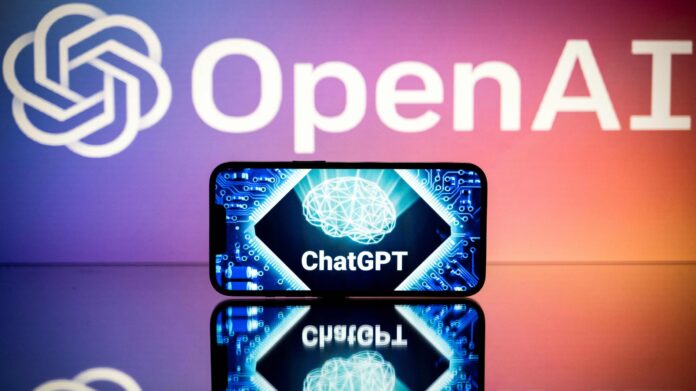To stop ChatGPT abuse, OpenAI has a new tool that can tell you whether a piece of text is more likely to have come from an AI program or a human.
OpenAI introduced the “classifier” tool(Opens in a new window) on Tuesday to help crack down on AI-generated text that’s being passed off as coming from a human. The problem has become especially pronounced in education with students exploiting ChatGPT to complete homework assignments.
In a blog post(Opens in a new window), OpenAI also noted that AI-generated text could pose a threat when used to generate automated text for misinformation campaigns.
The classifier tool is pretty straightforward: Submit some text at least 1,000 characters in length, and OpenAI will tell you the likelihood that it came from an AI program or a human. The tool was created by training a computer model to discern between “pairs of human-written text and AI-written text on the same topic.”
(Credit: OpenAI)
However, the San Francisco lab admits the classifier is far from perfect. “In our evaluations on a ‘challenge set’ of English texts, our classifier correctly identifies 26% of AI-written text (true positives) as ‘likely AI-written,’ while incorrectly labeling human-written text as AI-written 9% of the time (false positives),” OpenAI wrote.
The classifier’s reliability also drops when examining short snippets or a few paragraphs of text. So the tool will only work on submissions at over 1,000 characters in length. In addition, “sometimes human-written text will be incorrectly but confidently labeled as AI-written by our classifier,” OpenAI noted.
“Additionally, students may quickly learn how to evade detection by modifying some words or clauses in generated content,” the lab said.
Hence, OpenAI says the tool “should not be used as a primary decision-making tool” when it comes to determining whether a piece of text is AI-generated or not. But despite all the limitations, OpenAI decided to release the tool as it works on “mitigations” to prevent students from exploiting ChatGPT for cheating purposes.
“We’re making this classifier publicly available to get feedback(Opens in a new window) on whether imperfect tools like this one are useful,” OpenAI added. “Our work on the detection of AI-generated text will continue, and we hope to share improved methods in the future.”
Recommended by Our Editors
An example of an essay ChatGPT can write.
(Credit: Open AI)
Launched in November, ChatGPT is so advanced that the AI program can write essays, poems, and answer test questions on a wide variety of topics within seconds. While the quality of the responses can be shaky, researchers have found that ChatGPT is smart enough to (barely) pass an MBA exam and even fix numerous bugs in computer code.
Inevitably, the emergence of ChatGPT has sparked questions over whether the same program threatens to undermine education and disrupt white-collar jobs. Already, some schools and teachers have decided to block the AI program on their networks over concerns that ChatGPT makes cheating on homework and tests all too easy. Meanwhile, some third parties have released their own free(Opens in a new window) tools(Opens in a new window) to help educators ferret out AI-generated text.
OpenAI said it’s trying to address the cheating problems by reaching out to teachers in the US to learn about their experiences. The lab has also published a document(Opens in a new window) with advice on how educators could introduce and oversee ChatGPT use in their classrooms safely.
But OpenAI also noted it’s still too early to say how programs like ChatGPT will affect education and society. “To date we have seen instances of productivity improvements that transform jobs, job displacement, and job creation, but both the near and long term net effects are unclear,” it said.
Get Our Best Stories!
Sign up for What’s New Now to get our top stories delivered to your inbox every morning.
This newsletter may contain advertising, deals, or affiliate links. Subscribing to a newsletter indicates your consent to our Terms of Use and Privacy Policy. You may unsubscribe from the newsletters at any time.
Hits: 1

















